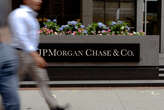Have you recently gone to the grocery store to buy eggs, only to find the section half empty or barely stocked at all? You might be wondering why there’s an egg shortage, and why the ones that are available are so expensive (I recently paid $8.49 for a carton at my local food co-op).
It certainly wouldn’t be the first time people are asking why eggs are so expensive, as egg prices were a major point of contention during the recent U.S. presidential election.
As for the answer? There are a few reasons, namely: inflation, supply chain issues, recent contaminations that have led to a number of recalls, and now, bird flu.
Let’s break it down.
Egg prices are rising
It’s not your imagination. Egg prices have definitely gone up. How much depends on what kind of eggs you are buying, where you live, and where you shop. Do you shop at a high-end organic foods retailer? Or at a discount supermarket (like Market Basket, whose slogan, “more for your dollar,” says it all)?
A look at the numbers shows wholesale prices for large eggs reached $5.57 per dozen in the Midwest last month, up 150% from a year ago, and a carton of eggs was running a staggering $8.85 in California, according to commodities data from Expana reported by Reuters.
If we look at prices as a whole across the country, eggs rose over 38% in the last year, bringing a carton up to $3.65 in November compared with $2.14 in November 2023, according to the U.S. Bureau of Labor Statistics’ Consumer Price Index, per USA Today.
And eggs could get even pricier. Karyn Rispoli, Expana’s managing editor for eggs, told Reuters stores may raise prices in 2025, though they have been slow to do so given the current sticker shock.
Supply chain issues don’t help
Since the pandemic, supply chain issues have had a major impact on just about every industry, though most noticeably, perhaps, on the agricultural industry.
Simply put, the egg industry continues to deal with these unresolved issues, namely, a labor shortage and building costs years after COVID-19 initially broke out in the U.S. in March 2020. The logistics of getting eggs from the farm to your refrigerator isn’t easy, and requires shipping and manufacturing, all of which are just much more expensive now.
Eggs are being recalled
There has been an alarming number of food recalls over the past year, and eggs are no exception.
Over the holidays, Kirkland Signature organic eggs sold at Costco were recalled due to possible salmonella, as were Handsome Brook Farms’ eggs, according to the Food and Drug Administration. Prior to that, a major salmonella outbreak caused Wisconsin-based Milo’s Poultry Farms to recall two egg brands, Milo’s Poultry Farms and Tony’s Fresh Market, which resulted in 65 people getting sick, with two dozen people hospitalized.
An avian influenza or ‘bird flu’ outbreak is another factor
As if you didn’t have enough to worry about, now there’s an outbreak of avian influenza, or ‘bird flu,’ which refers to a group of influenzas that affect birds. Of 35 million commercial egg-laying hens killed by bird flu this year, nearly half contracted the virus in the past three months, according to Expana.
The strain of the virus now hitting the U.S. is H5N1. According to the U.S. Centers for Disease Control and Prevention (CDC), “H5 bird flu is widespread in wild birds worldwide and is causing outbreaks in poultry and U.S. dairy cows with several recent human cases in U.S. dairy and poultry workers.” So far, it has infected 66 people across 10 states, killing one person.
In humans, the bird flu can spread to the respiratory tract, making people sick, and in some cases, causing death. According to the CDC, while the current public health risk associated with these avian influenza detections in birds remains low, the agency recommends cooking all eggs to an internal temperature of 165˚F and emphasizes proper handling.









No comments